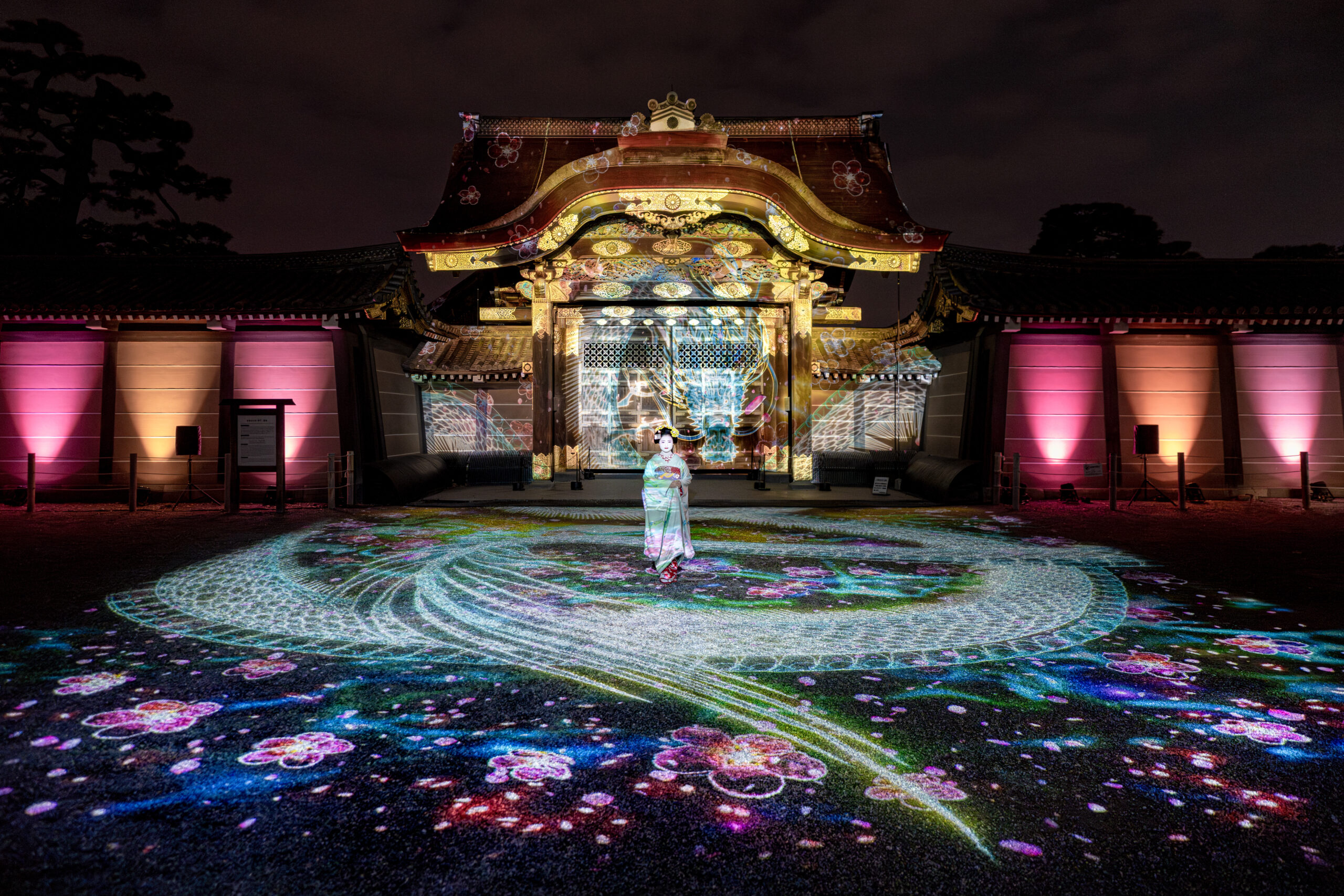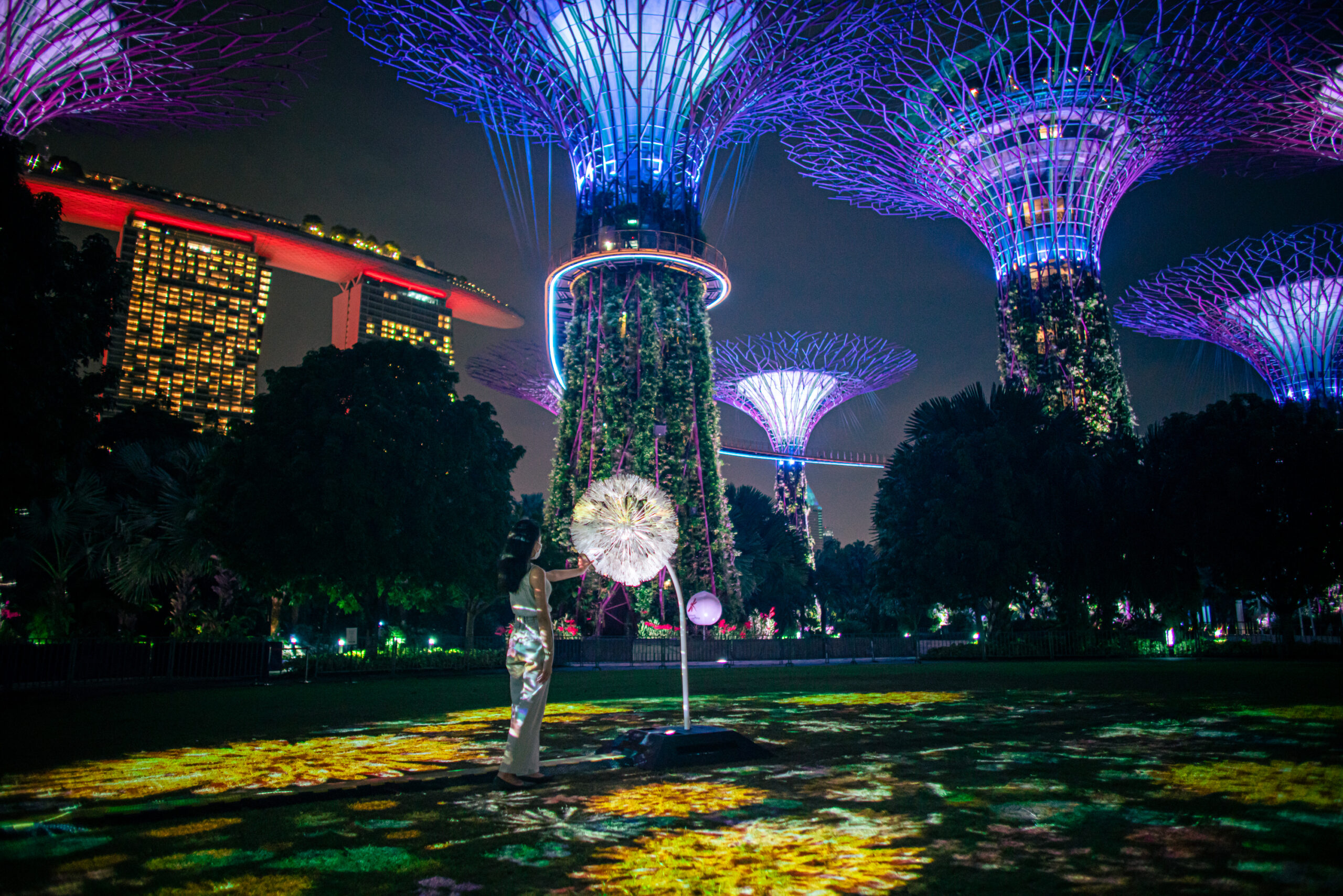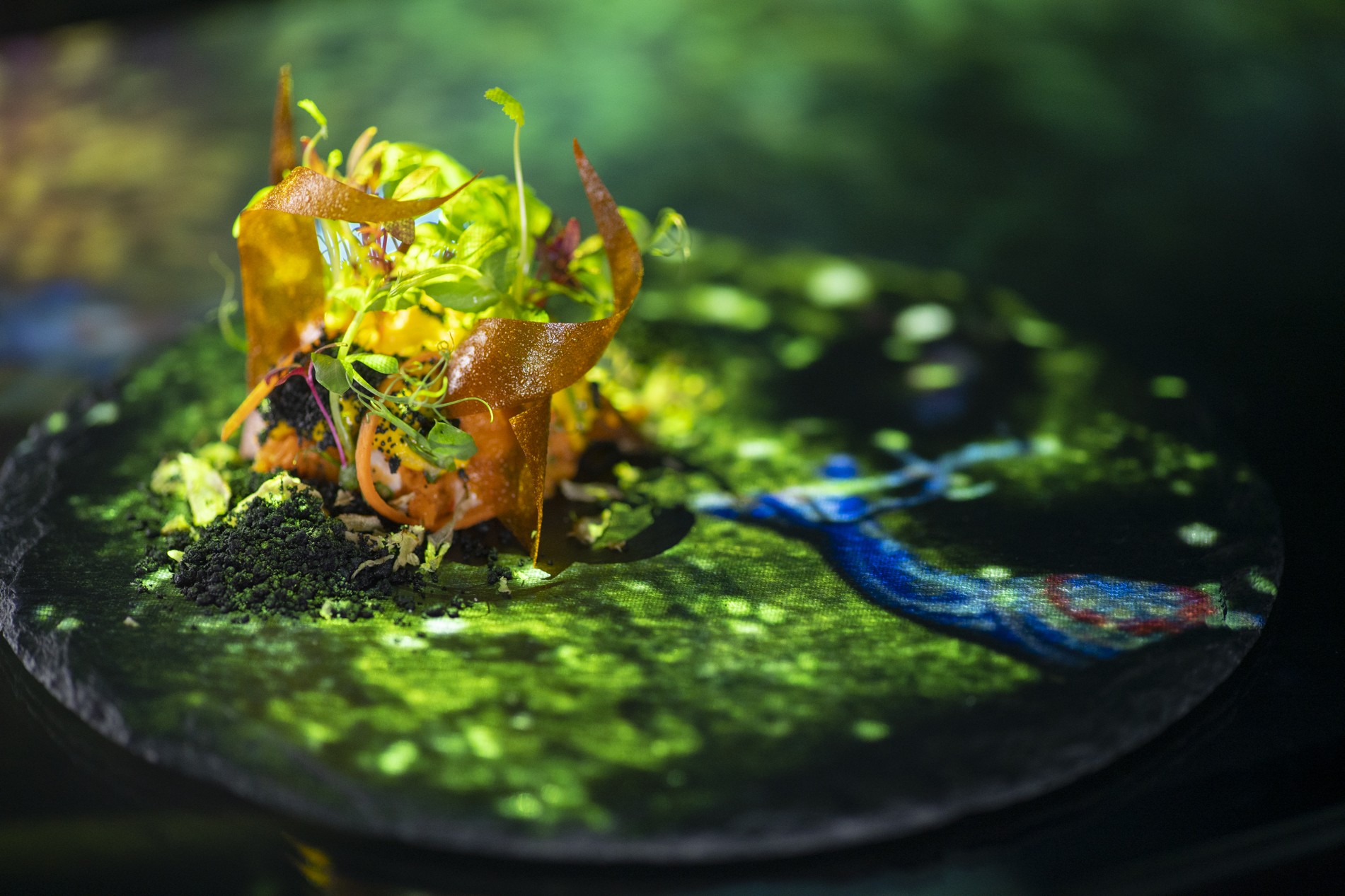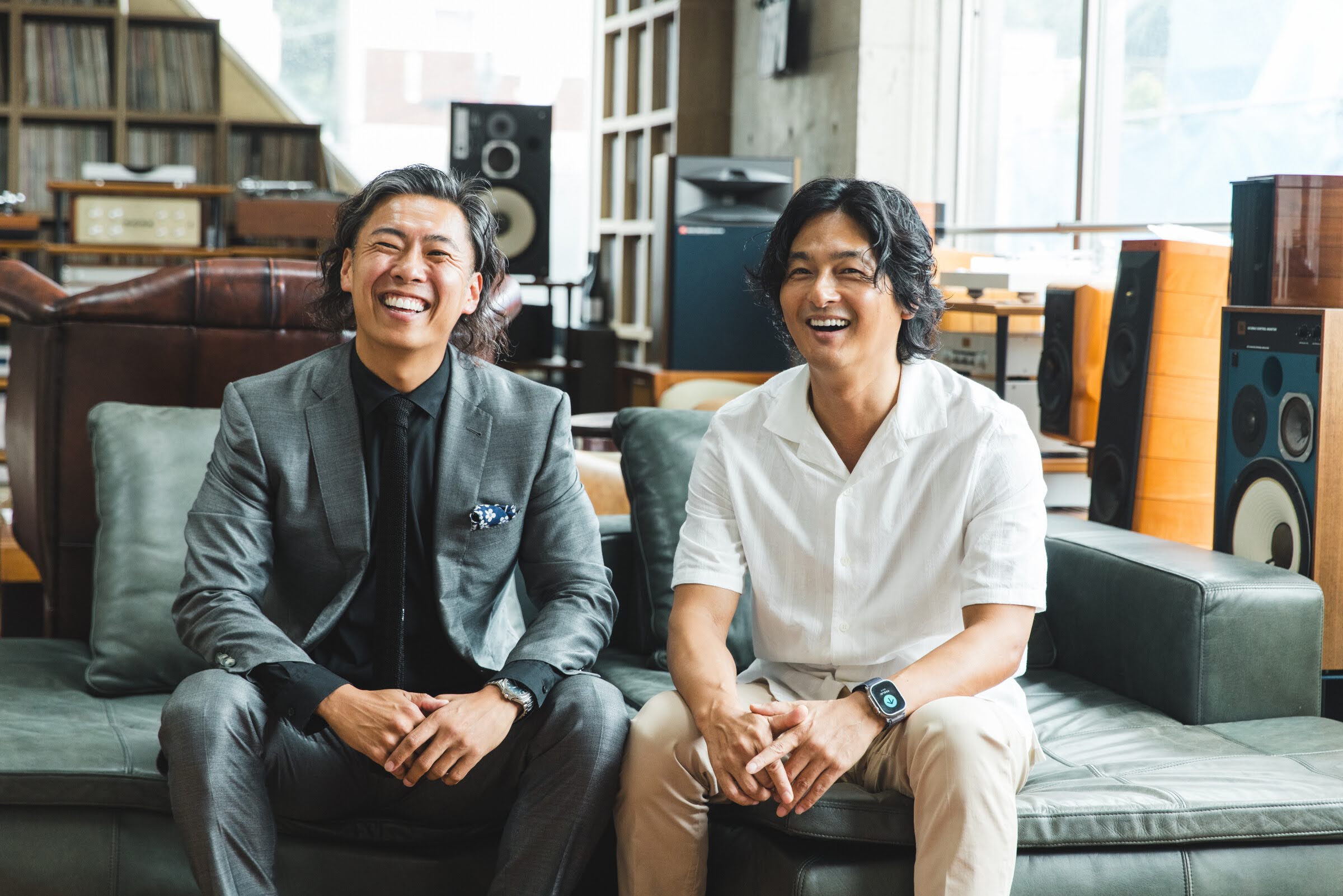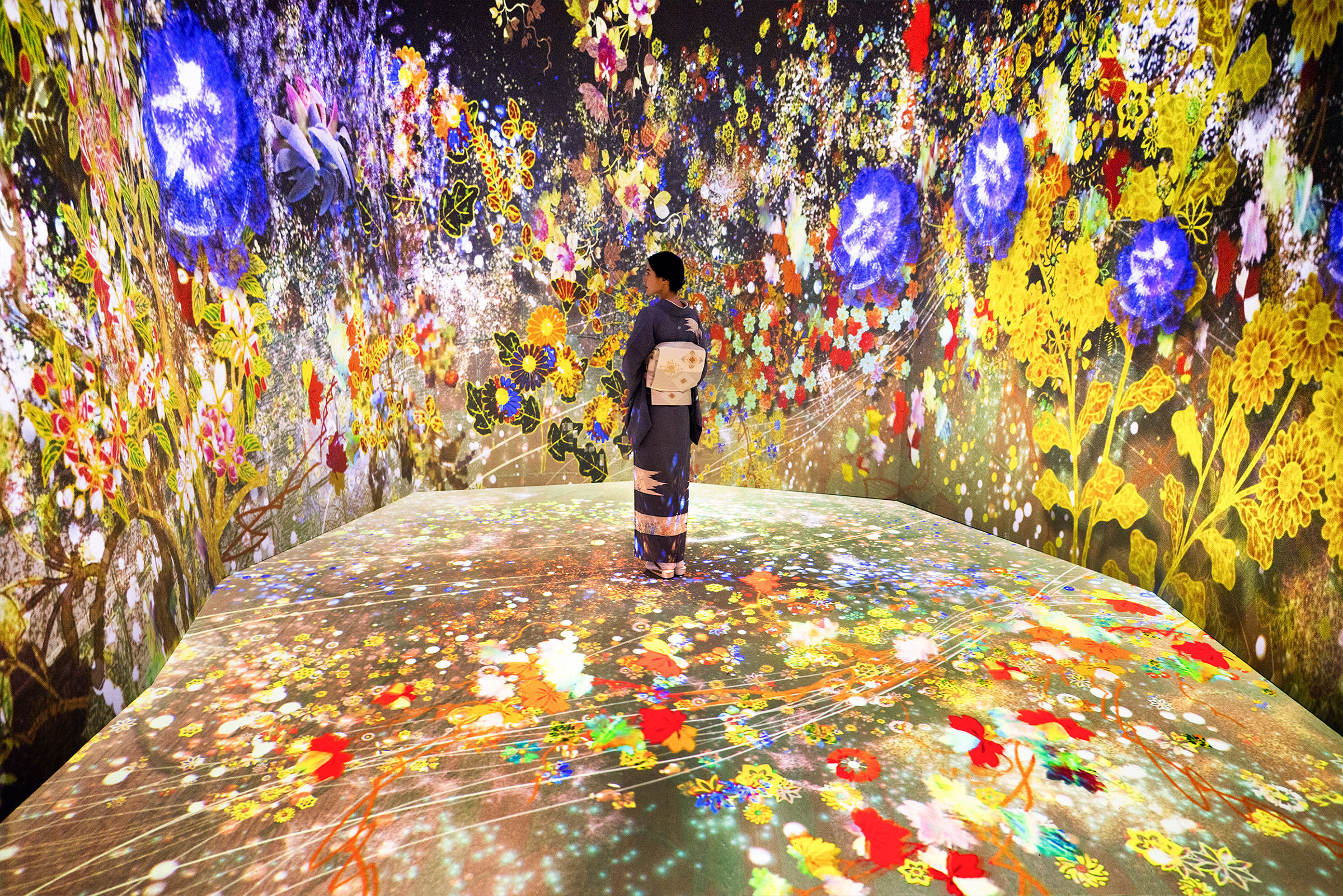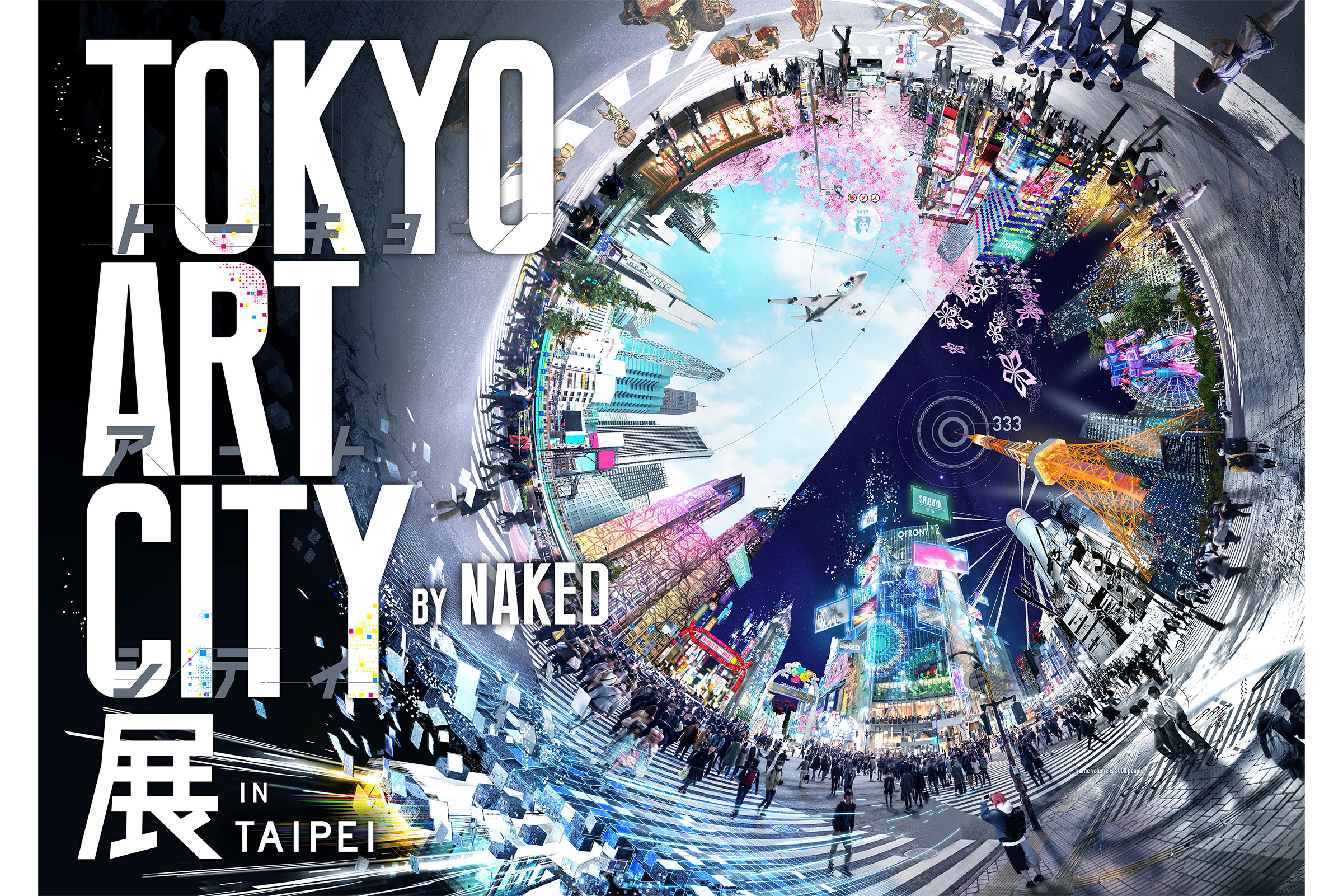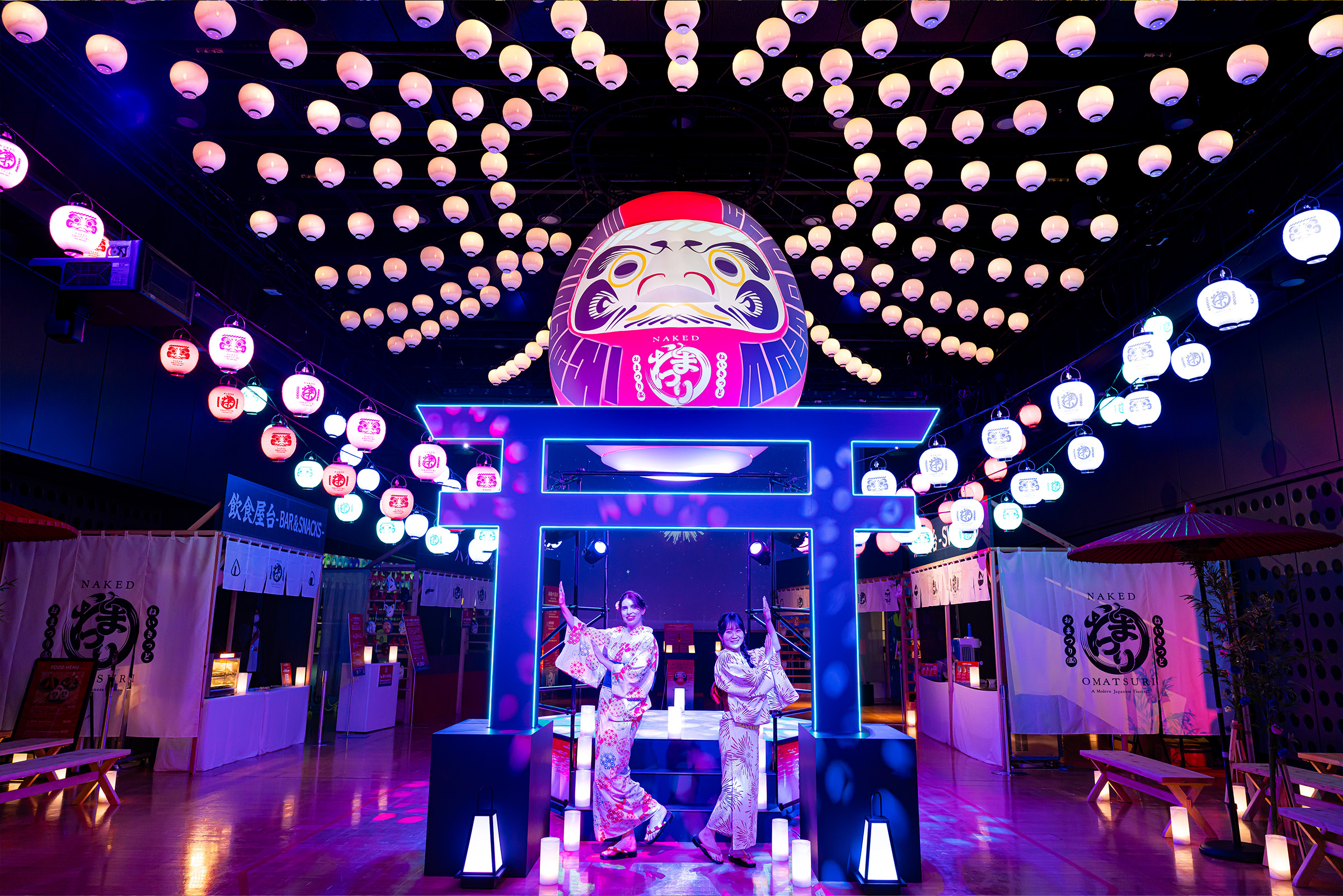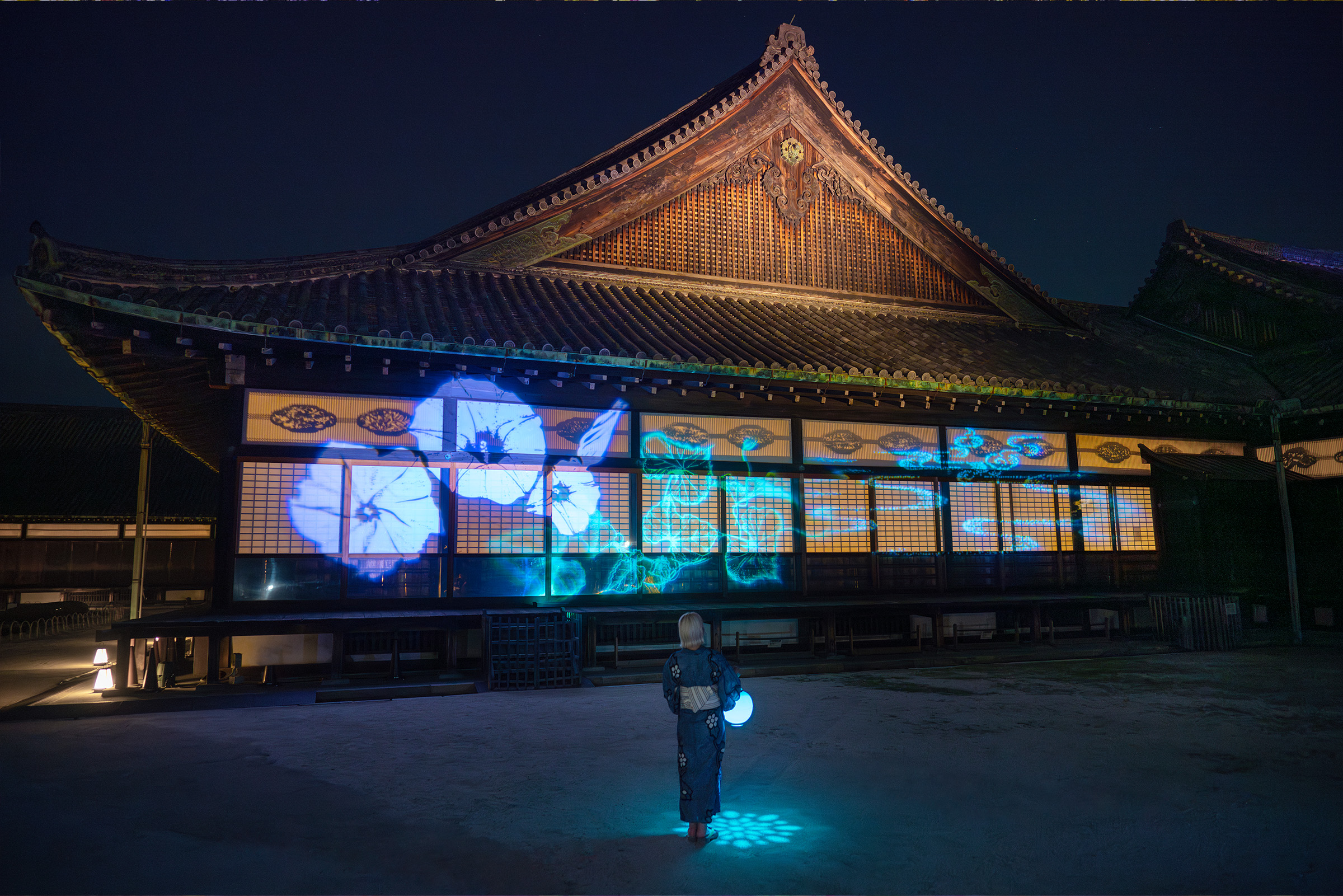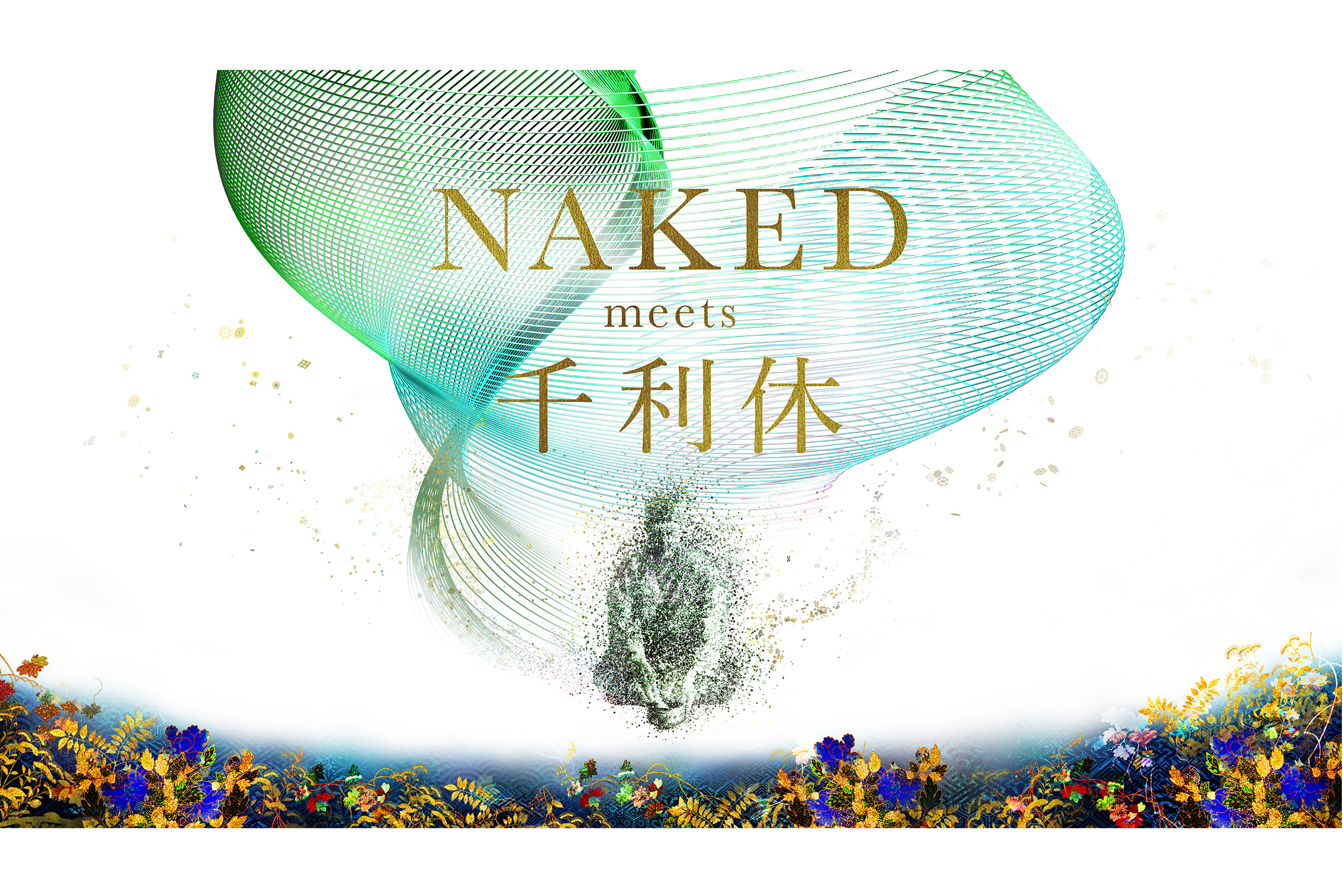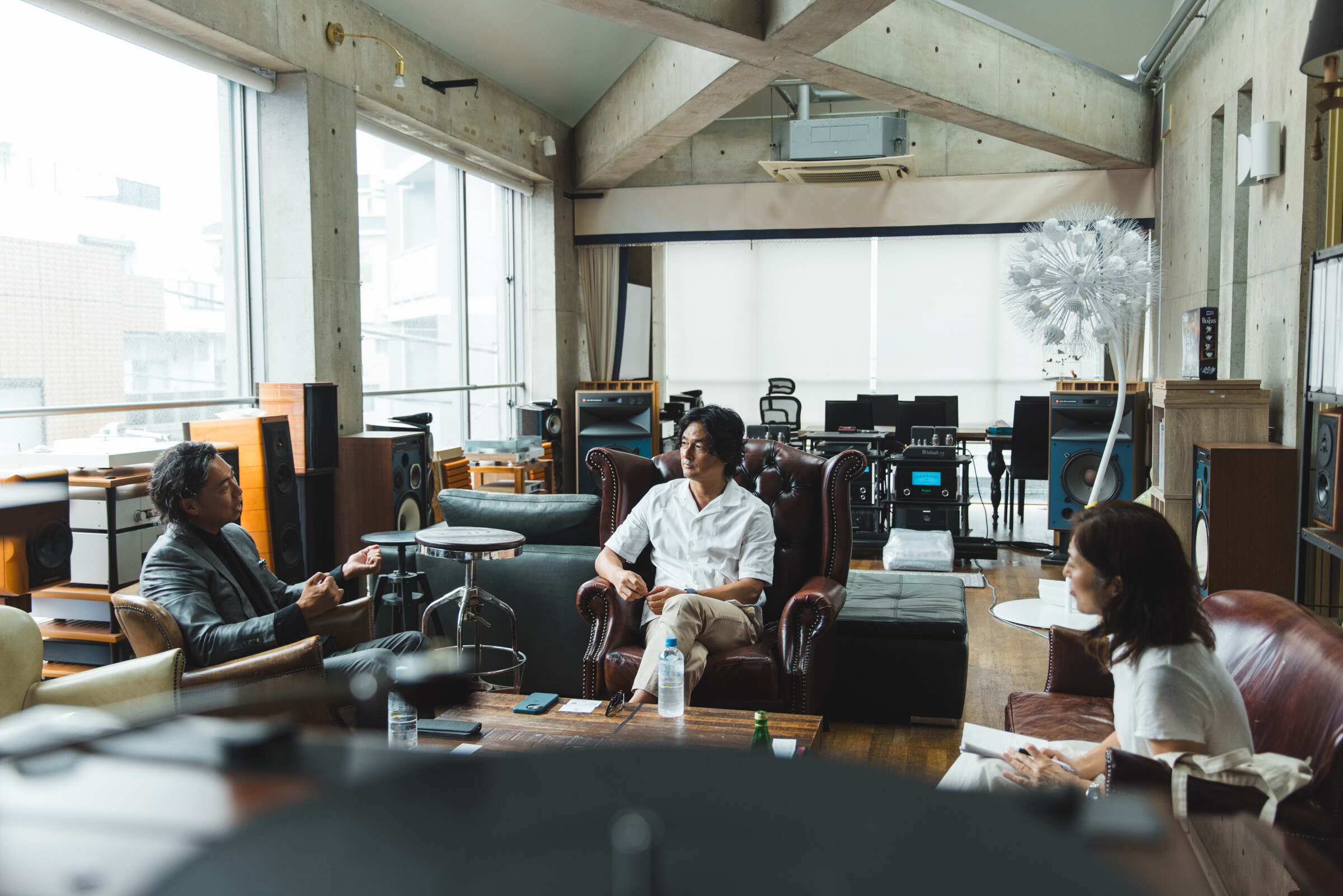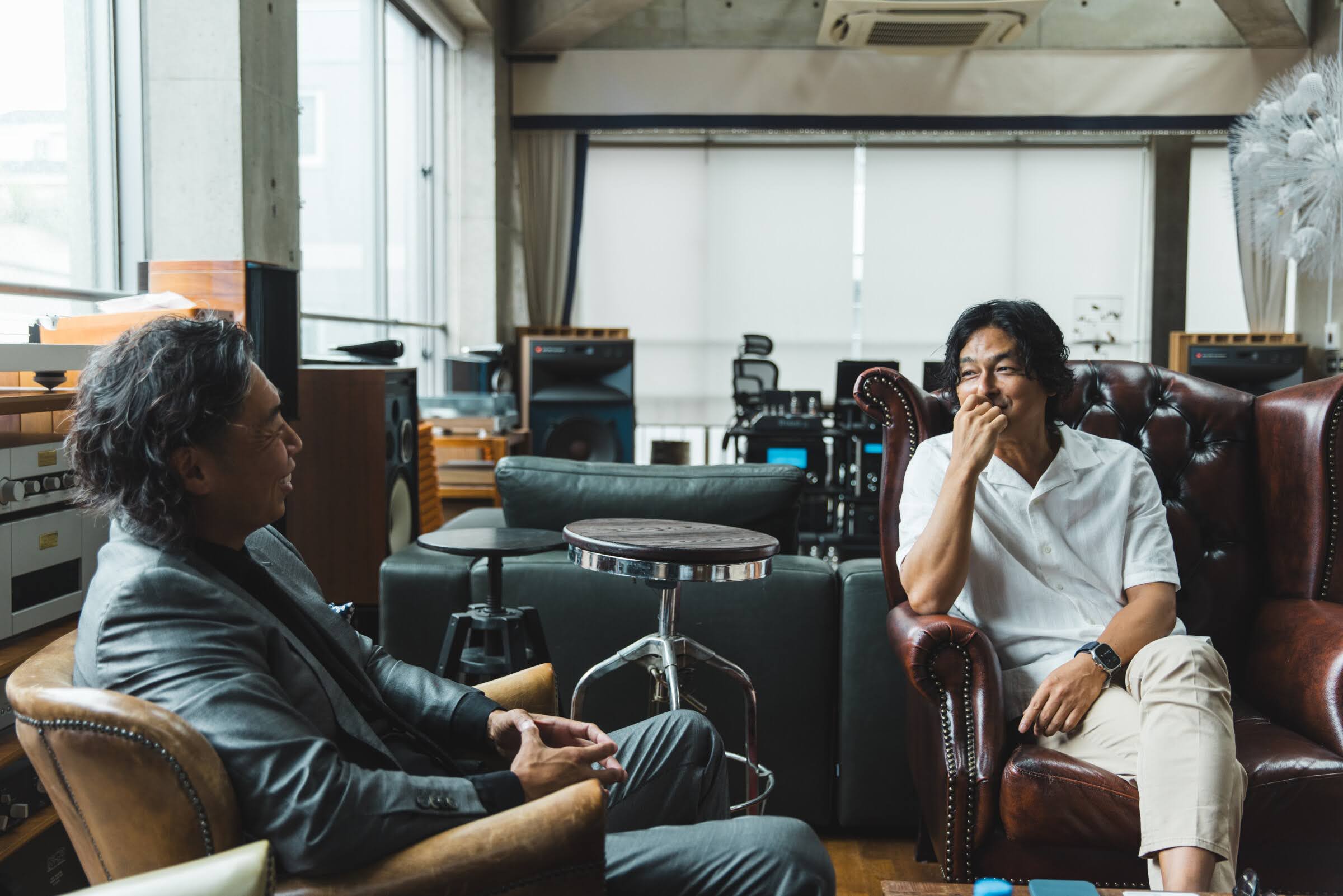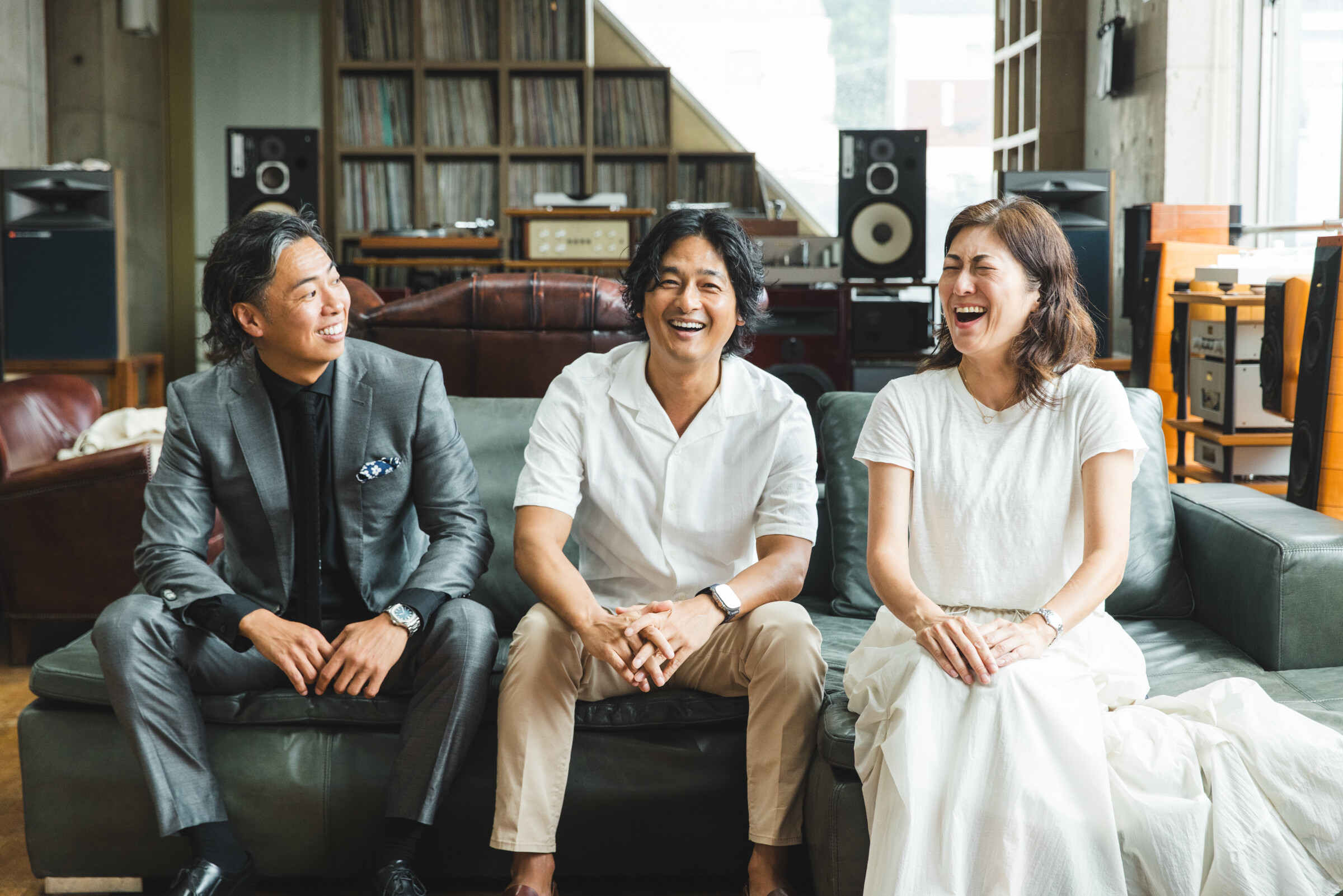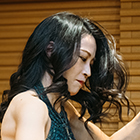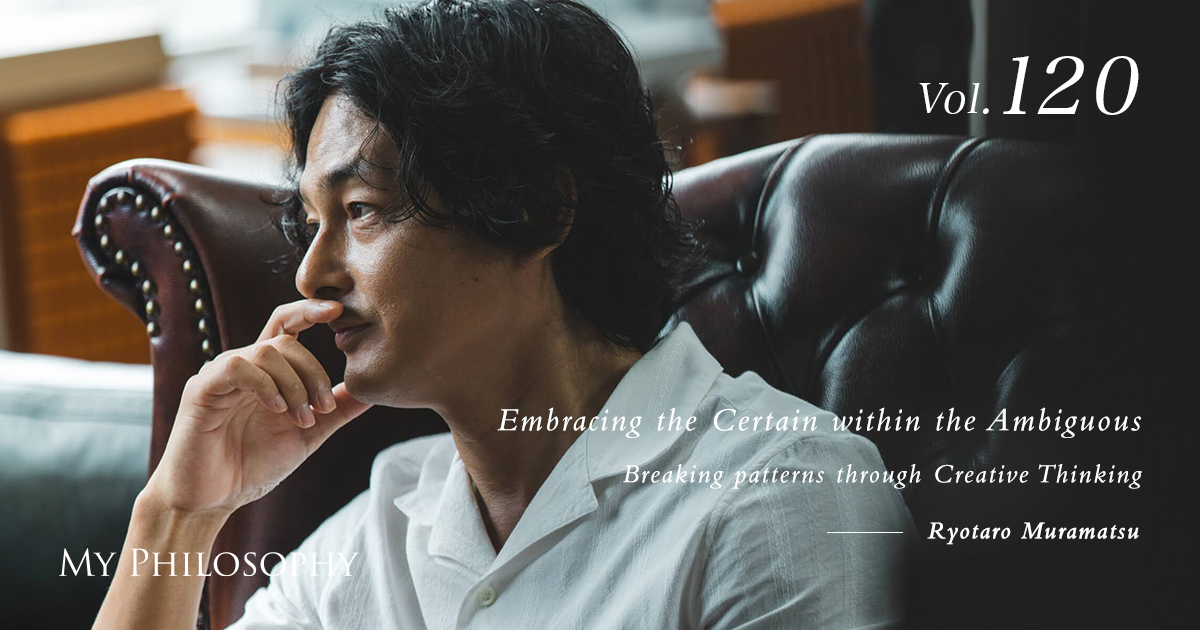
Ryotaro Muramatsu, founder of NAKED, INC., is known for large-scale works such as the projection mapping at Tokyo Station. Over the years, he has worked across film, television, advertising, and spatial design. His films have been nominated for and awarded at 48 international film festivals. More recently, his focus has shifted to immersive art events and projects that fuse traditional Japanese culture—ikebana, tea ceremony, kabuki, noh, and kyogen—with cutting-edge expression.
“Everything I create is an illusion. But just because an image is ambiguous doesn’t mean it lacks value. Ambiguity can hold certainty,” says Muramatsu.
He continues to push boundaries by expressing the inexpressible through moving images, challenging established patterns, and exploring the fundamental questions artists must face in the age of AI.
Profile
Vol.120 Ryotaro Muramatsu
Artist / Founder of NAKED, INC. / Visiting Professor at Osaka University of Arts / Branding Director of Achi Village, Nagano
Since founding the creative company NAKED, INC. in 1997, Muramatsu has led projects in various fields such as film, spatial presentation, local revitalization, and traditional Japanese arts.
The films he directed have received 48 nominations and awards at film festivals worldwide. He began creating works as a solo artist in 2018 and has since exhibited his works both within Japan and overseas.
In 2020, he launched the international art initiative "DANDELION PROJECT" that aims to unite people's prayers for world peace by "planting" interconnected dandelion sculptures in locations around the world. In 2023, he was delegated as the creative director for the G7 Hiroshima Summit social dinner attended by leaders of the guest nations.
https://naked.co.jp/
Expressing What Words Cannot
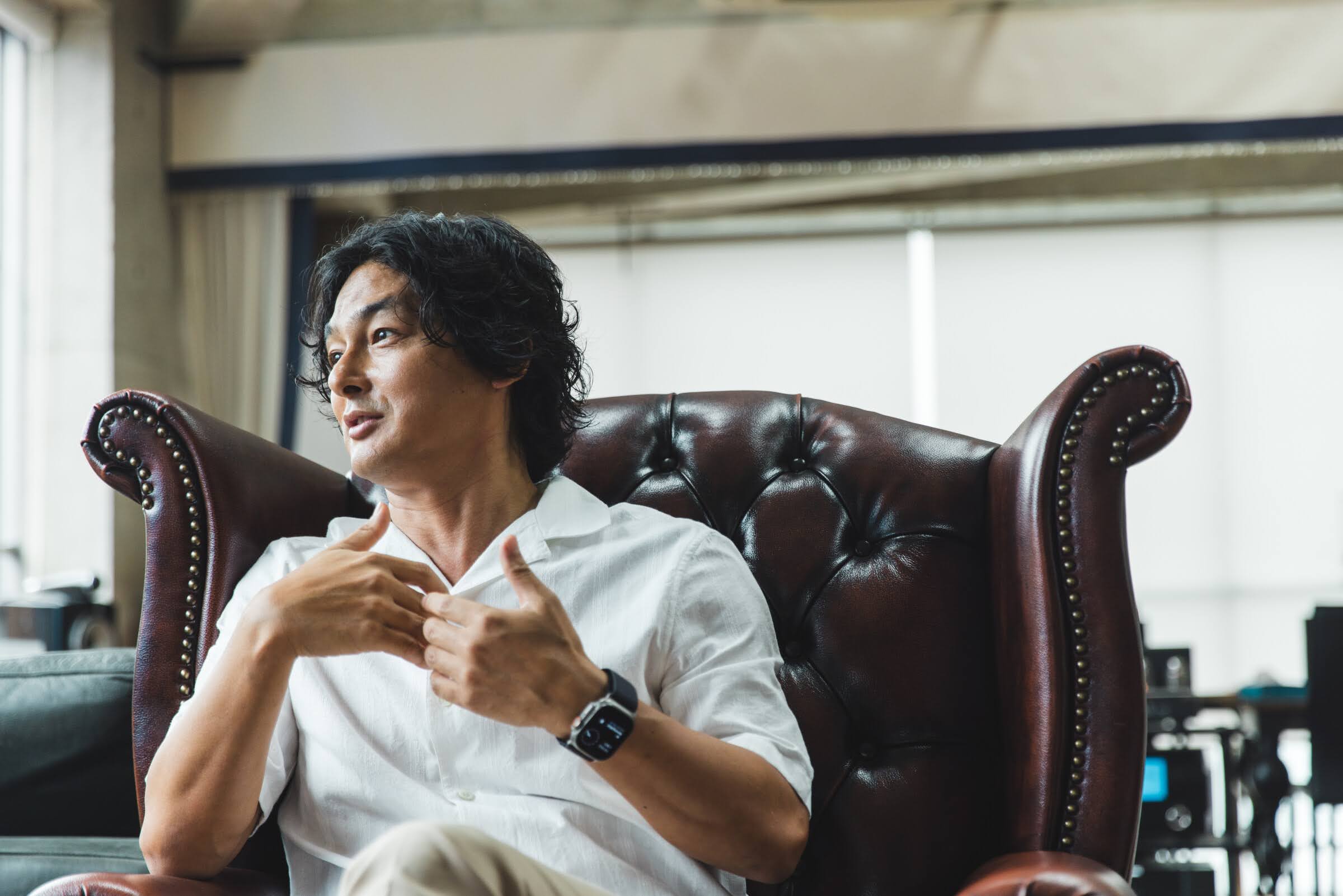
From the very beginning, my frustration has been this: the mouth can only produce one message at a time. What if I could speak several at once? I would be able to express so much more.
This is why I was drawn to visual expression.
There are feelings and experiences that words cannot capture, but images can communicate directly. The great advantage of visual art is its power to transcend language.
Early in my career in filmmaking, I struggled with linguistic barriers. But I realized that a visual experience crosses boundaries of culture and language, striking straight at human emotion. That is what makes it universal.
Having no Philosophy is My Philosophy
In my work, I try to remain as unfiltered as possible. I do not confine or define myself. Perhaps you could say my philosophy is to have no philosophy at all.
I want to dismantle my own individuality, my own policies, again and again. Deciding “this is who I am” feels wrong to me. Ideally, I want to be like a newborn child—or to put it more playfully, like an octopus: soft, adaptable.
The stronger your core, the more flexible you can be. It is weakness that makes you rigid. To remain flexible, you must have an unshakable center.
I do not consciously pursue “Japaneseness.” Perhaps it naturally seeps out of me, but I never intend it. No matter how much I break down my identity, there remains an axis I cannot escape. Maybe that is what true individuality is.
Don’t just want to be John Lennon— Create Imagine
Since my youth, my focus has never been on what I wanted to “become,” but on what I wanted to “do.” I never thought in terms of jobs or careers. By simply pursuing what I wanted to create, my path formed naturally.
Dreams, however, are only realized by realists. After all, to make a dream come true means turning it into reality. I may seem like a dreamer, but in truth, my stance is grounded.
I recall working on a television project with Sanma Akashiya where we helped a high-school student realize his dream. He later studied on his own, entered university, and even launched his own company. That is how real dreams are.
Many people say, “I want to be like John Lennon.” But I always think: rather than aspire to be Lennon, why not focus on creating a work as powerful as Imagine?
Searching for Truth in my twenties
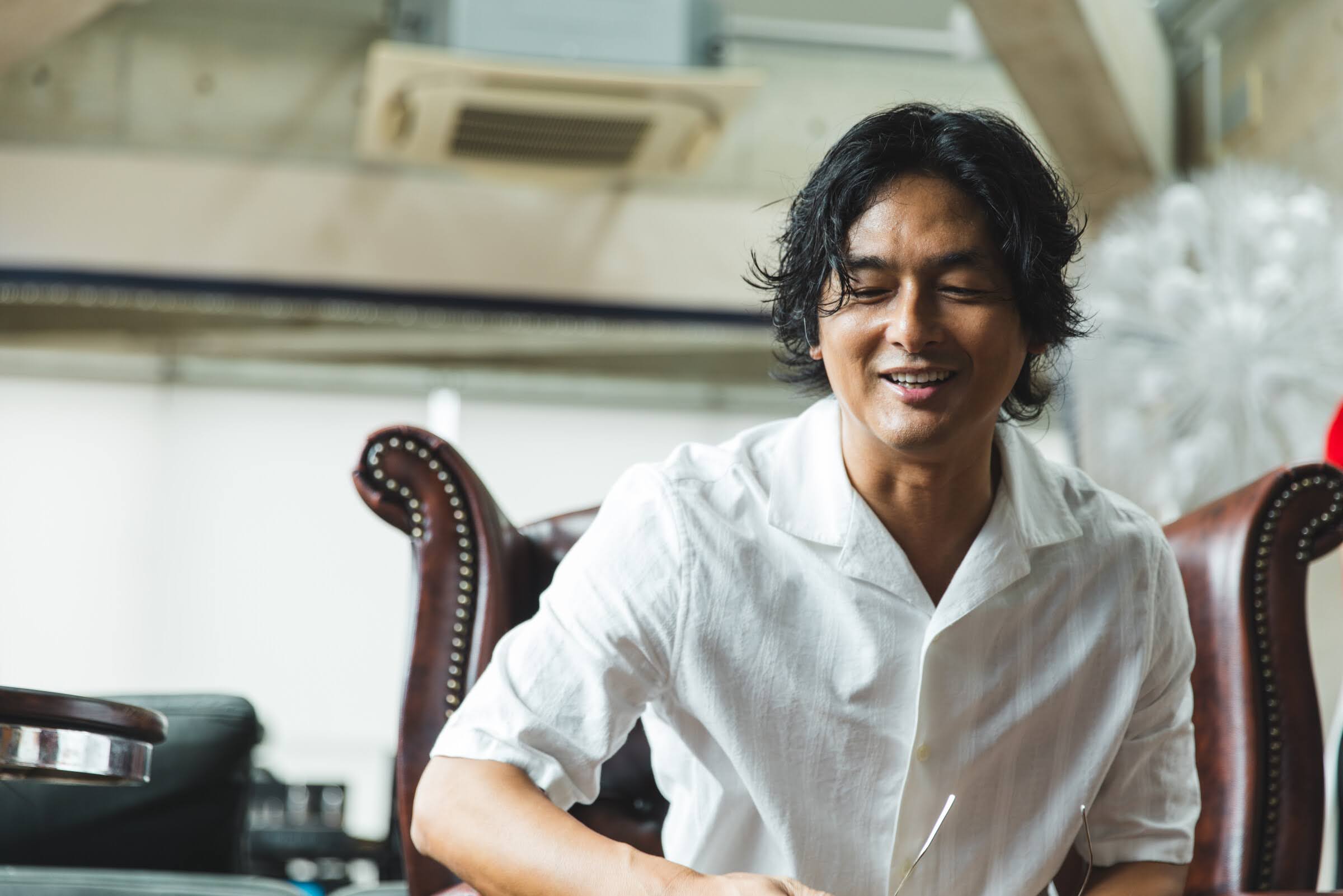
In my twenties, I was consumed by questions: What is right? What is truth? What is the most beautiful thing?
I remember telling off my agency’s president after he said, “You’re right, but the world doesn’t work that way.” I snapped back, “If it’s right, it’s right. Isn’t it just that you lack courage?”
Back then, I could not accept anything but one ultimate truth. But after years of searching, I learned there is no absolute truth.
From Digital Debris to Real Experience
Around 2009, a turning point came. With the rise of the internet, video content exploded. No matter how beautiful the work, it was swallowed up by the digital sea—mere fragments of data. I felt overwhelmed by emptiness.
What I found instead was the power of real experience. Projection mapping appealed to me because it happened in a real place, with real people, responding with awe and delight. That reality was essential. It wasn’t about metrics—it was about human reactions in front of me. Because the moment vanishes, the experience becomes even more precious.
Between Nothingness and Existence
Everything I create begins as illusion—out of nothingness. I am fascinated by the space between “nothing” and “something.” I believe truth resides in the void.
The discovery of zero was extraordinary, because within zero lies infinite potential. Creation is similar: at first, there is only a vague, unexplainable image. Ambiguous, yet certain.
Love, for example, is invisible and undefined, but the feeling of loving someone is undeniable. In the same way, my works begin as ambiguous visions that gradually take shape, until they finally crystallize into something concrete.
The Japanese Value of Ambiguity
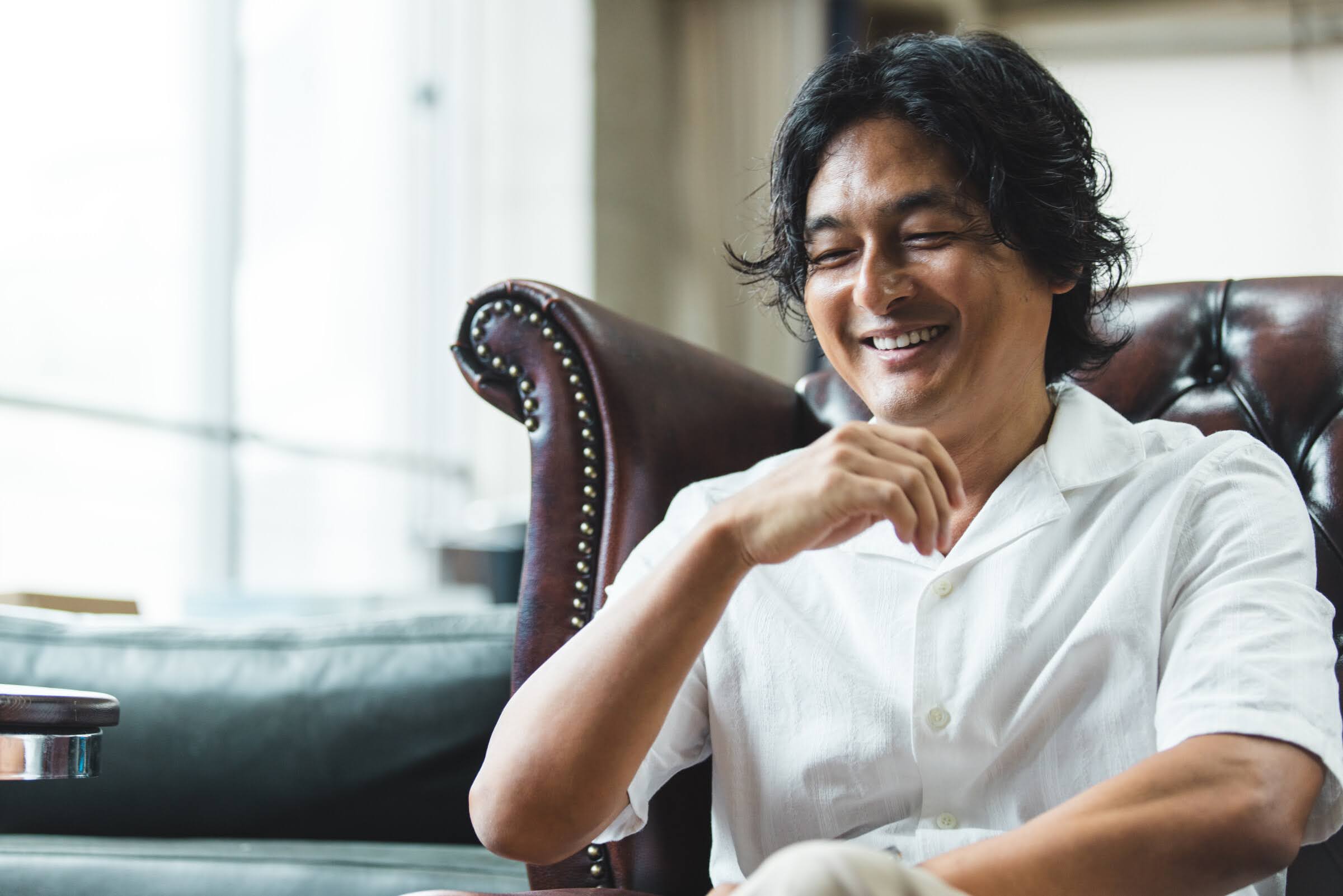
What I cherish in Japanese culture is the value placed on ambiguity. In many other cultures, there is pressure to divide everything into black or white. But life is mostly gray. That gray is meaningful, and I want to show its importance to the world.
Paradox and Collaboration
I often collaborate with masters of traditional arts such as tea ceremony, ikebana, kabuki, noh, and kyogen. They inherit names through generations, becoming the “eighth” or “tenth” in a lineage. Their art is an eternal continuum.
I, by contrast, am often called an “avant-garde artist.” In other words, I am just a first-generation fledgling. When such opposing forces—eternal tradition and the transient newcomer—meet, the result can be fascinating.
Working with people similar to yourself is easy, but limited. It is the collision of opposites that creates distance and generates something extraordinary. The truth lies somewhere in the middle.
Likewise, once a work is released, it no longer belongs to me but to the audience.
How they feel about it is up to them. To insist they must understand it “my way” would be arrogant. Their interpretation is the truth for them.
Facing the Age of AI

As the age of AI fully arrives, many of our assumptions will crumble. In a world where anything can be generated, what becomes of creation? If all images can be AI-produced, how will we distinguish authenticity?
In such a time, when people may lose their sense of direction, the last remaining value will be physical, tactile experiences.
To embrace ambiguity. To break patterns. To refuse to define oneself. These are the ways I wish to keep pursuing “ambiguous yet certain things” in the era of AI.
Never had I met an interviewer less inclined to play the listener (laughs).
And yet, that struck me as his way of engaging with the world: not by belonging or conforming, but by always putting forward, “This is me—how about you?”
Having spent his childhood in New York, Sugiyama grew up in an environment where cultures and values constantly collided. To survive, he was continually challenged to ask himself who he was, to search within, and to express it outwardly. Those experiences, I believe, shaped the stance he carries today.
When people who are “different” confront each other, seek to understand, and ultimately accept one another, entirely new perspectives and connections can emerge. I have learned this myself through my work and my life, engaging with people and cultures across the world. Though our personalities and temperaments differ, I felt a deep sense of resonance. On the global stage, Sugiyama keeps engaging with diversity head-on, in an honest and ongoing dialogue with the world.
Founder of NAKED, INC. Ryotaro Muramatsu
My conversation with Ryotaro Muramatsu was not a simple interview, but an intellectual exchange that could only take place between those who have a deep curiosity about the world and the determination to pursue it thoroughly.
As we spoke across diverse themes—art, film, work, organizations, and family—I came to realize that we share fundamental values in both expression and life.
When Muramatsu speaks of “the certainty that dwells within ambiguity,” it is not an abstract escape, but rather a truth that only those equipped with intellectual rigor can truly grasp. His thinking, freely traversing such polarities as “tradition and innovation,” “nothingness and existence,” and “dreams and reality,” is always an attempt to break existing patterns while also probing the very essence of human existence.
After this dialogue, I found myself wanting to work together with Muramatsu someday. Of course, when that time comes, I suspect I’ll need to arm myself with a touch of “ambiguity” as well (laughs).
July 2025, at NAKED, INC.
Interview & Editing: DK Sugiyama
Project Manager: Chiho Ando
Text: Eri Shibata (Deputy Editor, My Philosophy)
Photography: Nobuhiro Totani




